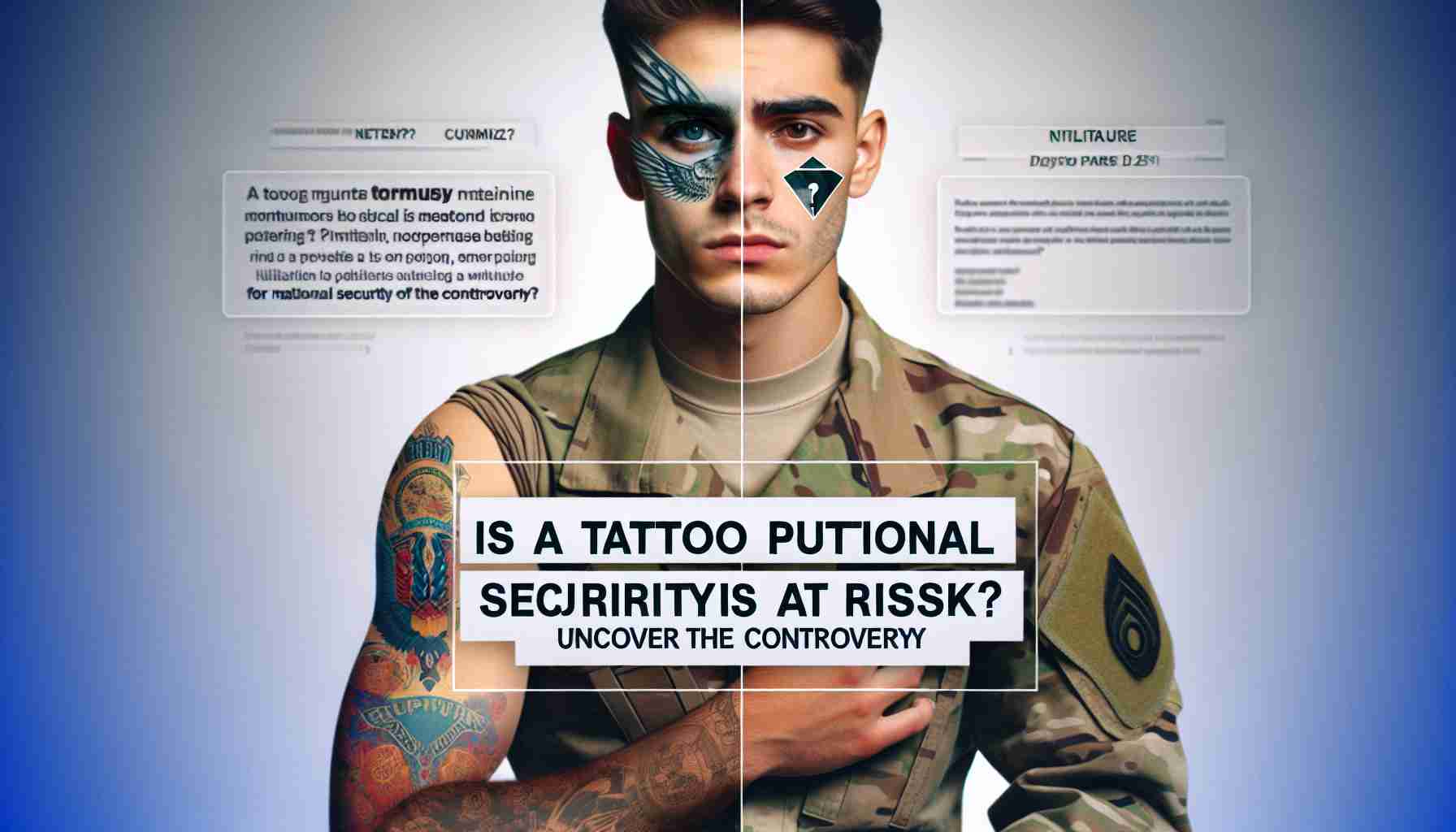Hegseth’s Tattoo Sparks Heated Senate Debate
At a recent Senate Armed Services Committee hearing, the spotlight turned to Pete Hegseth, President Donald Trump’s nominee for Secretary of Defense, as a seemingly innocuous tattoo ignited a fiery discussion. The session took an unexpected turn when Senator Kevin Cramer directed attention to Hegseth’s Jerusalem Cross tattoo, which has drawn accusations of being linked to extremist ideologies.
In response to these claims, Hegseth clarified that the Jerusalem Cross is a revered Christian symbol and emphasized its historical significance. Notably, he referenced its presence during President Jimmy Carter’s funeral and its display within the National Cathedral, arguing against the allegations of extremism.
Amid the hearing, Hegseth recounted a troubling experience regarding his service: orders to guard President Joe Biden’s inauguration were abruptly canceled, allegedly due to the controversial tattoo. He expressed concern for others in similar situations, questioning the fairness of such treatment.
The tattoo features a prominent Jerusalem Cross accompanied by four smaller crosses, adding to the complexity of public perceptions. Hegseth’s defenders view the tattoos as personal symbols of faith rather than political statements, despite the growing discourse around military extremism.
This incident highlights an ongoing tension within the military community, as Hegseth warned of the potential dangers of politicizing the armed forces by prioritizing concerns of extremism.
Controversial Tattoo and Its Impact: A Symbol of Faith or Extremism?
Overview of Hegseth’s Tattoo Controversy
The recent Senate Armed Services Committee hearing, featuring Pete Hegseth – President Donald Trump’s nominee for Secretary of Defense, brought to light a debate surrounding his Jerusalem Cross tattoo. This incident has not only stirred discussions about personal expression and military representation but has also highlighted broader societal concerns regarding symbols associated with faith and extremism.
Features and Significance of the Jerusalem Cross
The Jerusalem Cross is a Christian symbol consisting of a large cross with four smaller crosses in each quadrant. Historically, it has been used to signify the spread of Christianity and is often associated with the Crusades. Its recognition in various religious and cultural contexts, including its visibility during significant events like President Jimmy Carter’s funeral and its incorporation within the National Cathedral, adds layers to its meaning.
# Pros and Cons of Tattooing Symbols of Faith in Military
Pros:
– Personal Expression: Tattoos can serve as personal expressions of faith and identity, helping individuals maintain a sense of self amid military life.
– Cultural Significance: Symbols like the Jerusalem Cross can foster a sense of community among those who share similar beliefs.
Cons:
– Misinterpretation: Tattoos can be misinterpreted by others, leading to accusations of association with extremist ideologies.
– Military Culture: The military’s diverse environment necessitates sensitivity to perceptions surrounding tattoos, which may affect unit cohesion.
Use Cases of Military Tattoos
In the military, tattoos symbolize various personal beliefs, commemorate experiences, and establish identities. The use of religious symbols, such as the Jerusalem Cross, often aims to invoke a sense of purpose and resilience. However, these choices can also lead to scrutiny and debate about their appropriateness in a professional military setting.
Current Trends in Military Tattoos
As societal perceptions of tattoos evolve, more military personnel are choosing to express their beliefs and experiences through body art. This trend raises questions about the boundaries of personal expression versus professional image, especially regarding religious symbols. The ongoing debate emphasizes the need for policies that respect personal beliefs while maintaining professionalism in the armed forces.
Insights and Innovations in Understanding Extremism
Hegseth’s situation underscores the need for a nuanced understanding of extremism within military ranks. As discussions about political affiliations and symbols become more prevalent, there is an emerging focus on providing comprehensive training that differentiates between genuine extremism and benign personal beliefs.
Predictions for Future Discussions on Tattoos and Extremism
The incident involving Hegseth may foreshadow deeper discussions regarding the intersection of personal identity, religious symbols, and perceptions of extremism in the military. As policies evolve to address these concerns, there may be an increasing push for training and resources to educate military personnel on recognizing the difference between divergent beliefs and genuine threats.
Conclusion
The debate surrounding Pete Hegseth’s Jerusalem Cross tattoo reflects broader societal issues regarding faith, identity, and the potential for misunderstanding in a pluralistic environment. As the military seeks to balance personal expression with maintaining professionalism, ongoing dialogue will be essential in navigating these complex issues.
For more information on military culture and its evolving perceptions regarding tattoos and personal beliefs, visit Military.com.

